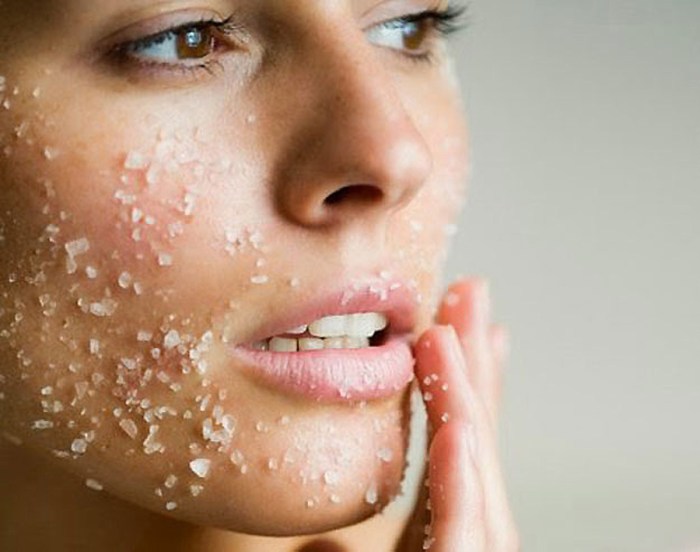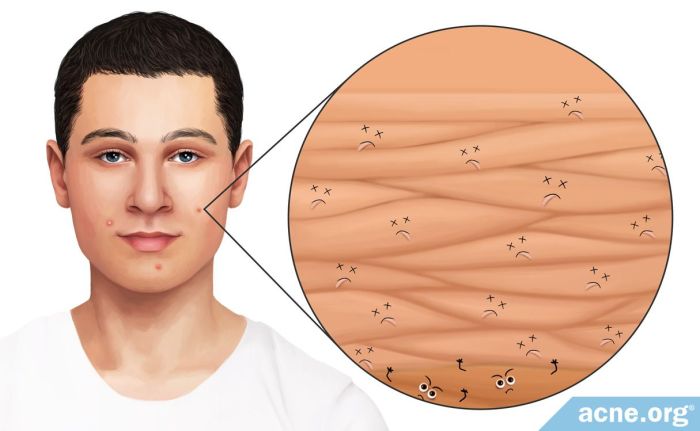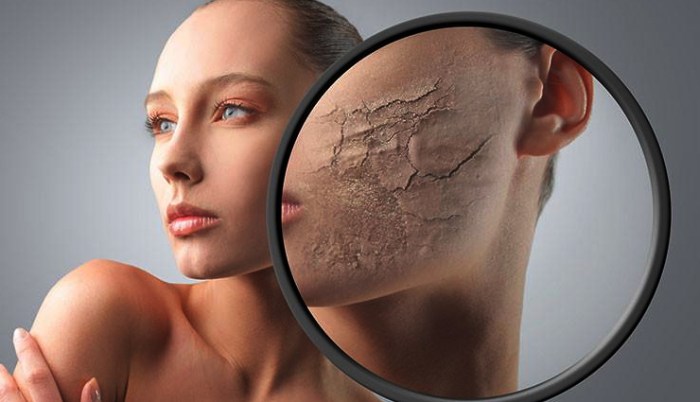What does exfoliation remove and deplete? This intriguing question unlocks a fascinating exploration of the impact exfoliation has on our skin. As we delve into this topic, we will uncover the various substances exfoliation removes, as well as the potential depletion of essential elements that can occur with excessive exfoliation.
Join us on this journey to unravel the intricate relationship between exfoliation and skin health.
What Exfoliation Removes

Exfoliation is the process of removing dead skin cells from the surface of the skin. It can be done with a variety of methods, including physical exfoliators (such as scrubs and brushes) and chemical exfoliators (such as glycolic acid and salicylic acid).
Exfoliation can remove a variety of substances from the skin, including:
- Dead skin cells
- Dirt
- Oil
- Bacteria
- Makeup
Exfoliation is important for maintaining healthy skin because it helps to:
- Remove dead skin cells that can clog pores and lead to breakouts
- Stimulate the production of new skin cells
- Improve the absorption of skincare products
- Give the skin a smoother, brighter appearance
What Exfoliation Depletes

While exfoliation can be beneficial for the skin, it is important to avoid over-exfoliating. Over-exfoliation can remove the skin’s natural oils and moisture, which can lead to dryness, irritation, and other skin problems.
Some of the potential risks of over-exfoliation include:
- Dryness
- Irritation
- Redness
- Flakiness
- Increased sensitivity
To avoid over-exfoliation, it is important to:
- Exfoliate no more than 1-2 times per week
- Use a gentle exfoliator
- Avoid exfoliating if your skin is dry, irritated, or sunburned
- Moisturize your skin after exfoliating
Different Methods of Exfoliation

There are two main types of exfoliation: physical exfoliation and chemical exfoliation.
Physical exfoliationuses a physical abrasive to remove dead skin cells. Physical exfoliators can be natural (such as sugar or salt) or synthetic (such as microbeads).
Chemical exfoliationuses chemicals to dissolve the bonds that hold dead skin cells together. Chemical exfoliators can be alpha hydroxy acids (such as glycolic acid and lactic acid) or beta hydroxy acids (such as salicylic acid).
Each type of exfoliation has its own benefits and drawbacks.
Physical exfoliatorsare generally more abrasive than chemical exfoliators, which can make them more effective at removing dead skin cells. However, physical exfoliators can also be more irritating to the skin.
Chemical exfoliatorsare generally less abrasive than physical exfoliators, which makes them less likely to irritate the skin. However, chemical exfoliators can be less effective at removing dead skin cells.
The best type of exfoliator for you will depend on your skin type and concerns.
How Often to Exfoliate: What Does Exfoliation Remove And Deplete

The frequency with which you should exfoliate depends on your skin type and concerns.
If you have oily or acne-prone skin, you may need to exfoliate more often (1-2 times per week). If you have dry or sensitive skin, you may need to exfoliate less often (once every 1-2 weeks).
It is important to listen to your skin and adjust the frequency of exfoliation accordingly. If you notice that your skin is becoming dry, irritated, or flaky, you may be over-exfoliating.
Here are some signs that you may be over-exfoliating:
- Dryness
- Irritation
- Redness
- Flakiness
- Increased sensitivity
If you experience any of these signs, reduce the frequency of exfoliation or stop exfoliating altogether.
FAQ Insights
How often should I exfoliate?
The optimal frequency of exfoliation depends on skin type and concerns. Generally, it is recommended to exfoliate 1-2 times per week for normal skin, less frequently for dry or sensitive skin, and more frequently for oily skin.
What are the signs of over-exfoliation?
Over-exfoliation can manifest as redness, irritation, dryness, flakiness, and increased sensitivity. If you experience any of these symptoms, discontinue exfoliation and consult a dermatologist.